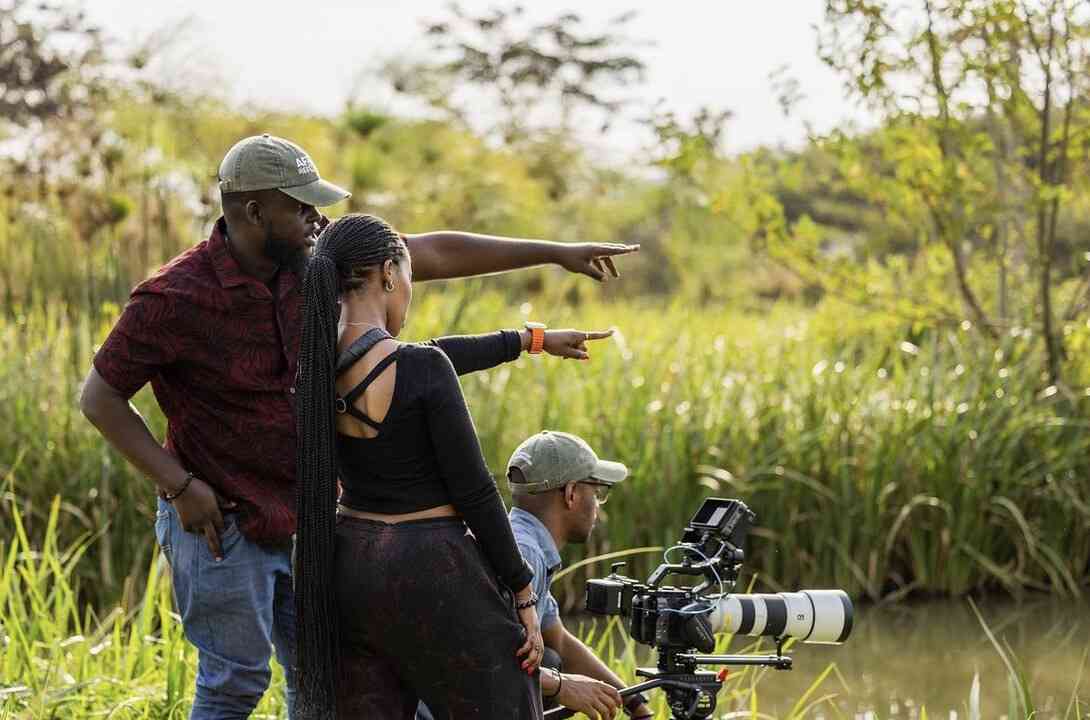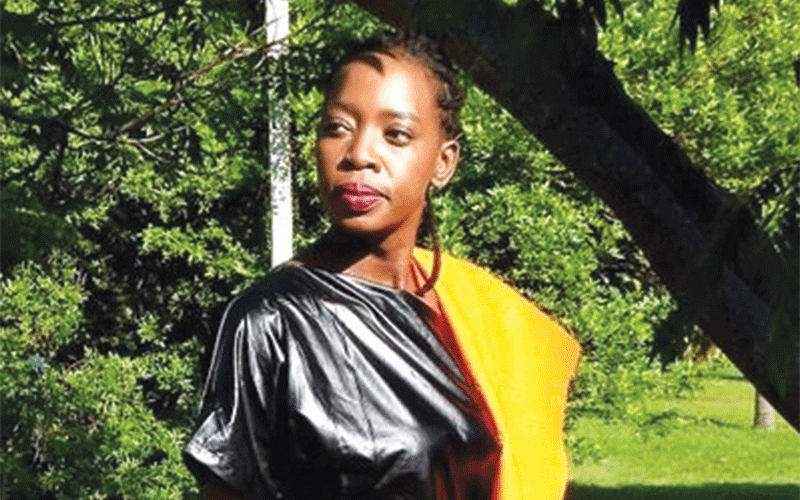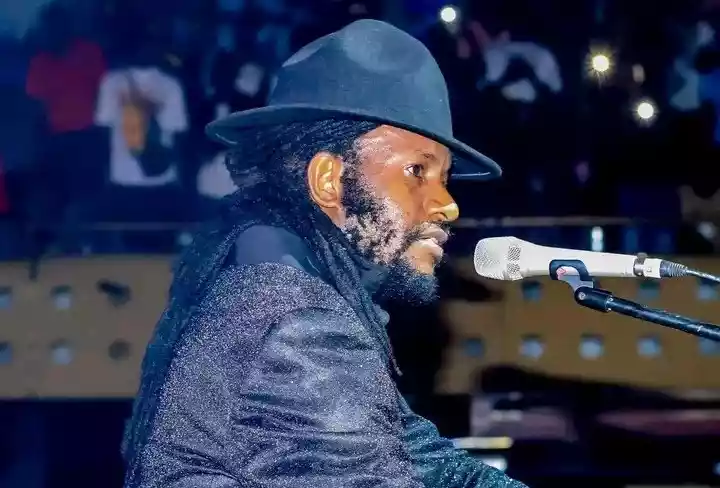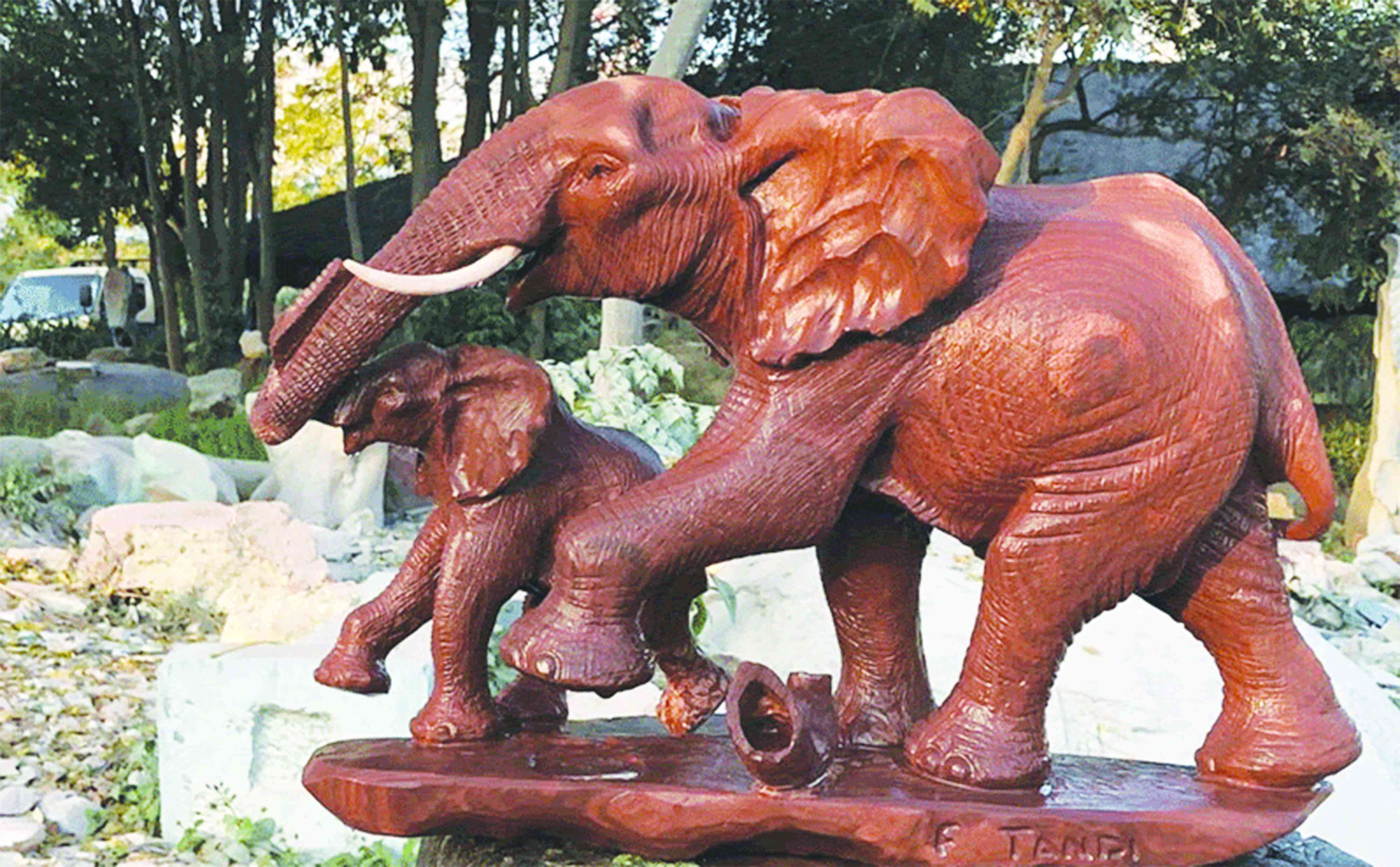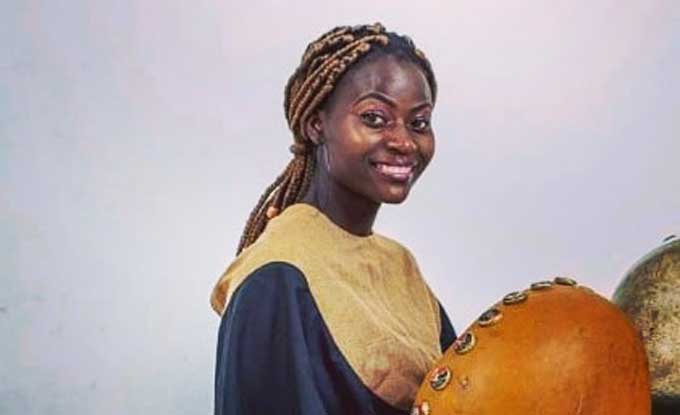
BY TENDAI SAUTA CHIEDZA Melody Tiyenga, aka Chichi Wembira, has retraced her family roots by developing proficiency in playing several types of mbira as she pursues her studies and research in ethnomusicology.
NewsDay Life & Style talked to Chichi Wembira on the sidelines of her rehearsal at the Music Crossroads Academy. Chiedza had just given a scintillating performance of Nyamaropa and Mhemamusasa which brought us into a dialogue.
“Fans and colleagues at school call me Chichi wembira and I am from Dande, that’s where my grandparents originated from before relocating to Domboshawa for a reason which I don’t know. I play mbira dzavadzimu often called Nyamaropa, Gandanga or Mavembe and Nyunganyunga and I am a vocalist, dancer, hosho and a ngororombe player.”
Chiedza, whose solo mbira acts have captured the attention of many corporates and international festivals, is a student at Music Crossroads Academy and also taking music business classes, a new programme that was recently introduced at the school.
“I am a solo performer and have worked with bands like an all-female band called Music Crossroads Divas, Vedu, Sipiti, Note2note Choir and at the moment I am a member of Music According to Percussion — a very powerful music ensemble which lifts percussion as the sole driver of music and in this group I play mbira, ngororombe, hosho and do vocals,” said Chiedza.
To Chiedza, the mbira has provided employment, entertainment and opportunities for cultural exhibitions in and outside Zimbabwe.
“I have participated in two Ethno Music festivals so far, the first one being Ethno Sweden 2018 in Rattivik with the help of Music Crossroads Academy and the second one was the very first Ethno festival in the USA 2021, North Carolina with the help of the Ministry of Youth, Sport, Arts and Recreation. I’m very grateful because they believed in me to be an ambassador of our mbira music in a foreign land.
“This was a peer-to-peer cultural exchange festival,where young musicians from all-over the world who play indigenous instruments or vocalist met for two weeks, learning and teaching traditional music from their countries, teaching each other to come up with a beautiful set for performances or recordings,” she said.
- Chamisa under fire over US$120K donation
- Mavhunga puts DeMbare into Chibuku quarterfinals
- Pension funds bet on Cabora Bassa oilfields
- Councils defy govt fire tender directive
Keep Reading
“At Ethno Sweden, we had performances during and at the end of the festival and at Ethno USA we recorded an album which is yet to be released and we also had a couple of performances at a very big festival called Leaf Festival and I was very honoured to do a closing act at this festival. These international tours have really helped me grow musically and I have met great musicians and people who really appreciate our mbira music.”
The Pan African Mbira Festival drew global attention, but network challenges and the cost of internet is still beyond the reach of many in Africa.
Mbira Institute director Albert Chimedza said cultural industries should be given priority to elevate economic, social and cultural religious values. Chimedza hailed the United Nations Educational Scientific and Cultural Organisation for listing the mbira instrument as a cultural object whose traditions have to be preserved.
“I feel like mbira music has not been given justice lately and it’s dying maybe because most people are Christians now and they have a misconception that mbira is devilish and are afraid of spiritual possession so they don’t want anything to do with traditional rituals and practices and they approach mbira with resistance, which is very sad. But I wish that people like myself and my fellow gwenyambiras should really take this instrument seriously and own it because it’s a very rich instrument and it’s broad as there are so many different types of mbiras but some of them most people don’t really know them. So there is a need to try and own our traditional instruments, not just mbira but also other traditional instruments as well,” said Chiedza.
Chichi Wembira says she gets her inspiration from her mbira teacher Othnell Mangoma Moyo, who she described as a great musician and a very rich man in terms of knowing Zimbabwean culture.
“Ambuya Stella Chiweshe, Sekuru Forward Kwenda and many other mbira musicians have contributed in building me up as a performer. I see myself somewhere very far because already I can see that I’m growing musically and my way of thinking about music has really changed. This programme has really helped me in my career as a performer and an aspiring traditional music teacher. This is just the beginning, I have a long way to go and I dream big,” said Chiedza.
On a parting note, Chiedza said: “All I can say is let’s not forget who we are and where we came from and own our culture, be proud of ourselves and have something that our children and grandchildren will inherit when we pass on because no one is going to live forever but our music has to keep going.”
- Follow us on Twitter @NewsDayZimbabwe



